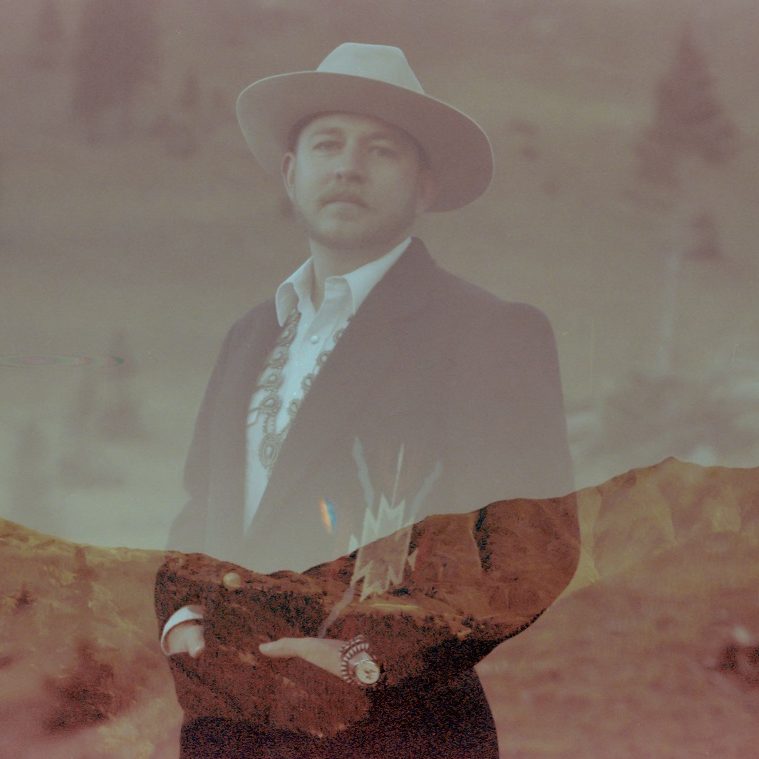They may be called The Lil Smokies, but the bluegrass bangers birthed by the band originating from Big Sky country are anything but small.
Formed in the late 2000s when the group’s current sole remaining original member, Andy Dunnigan, began bringing his Dobro to picking parties during his college days in Missoula, Montana, the Smokies have gone on to become one of the West’s most captivating modern-day string bands, as they release their fourth studio album, Break Of The Tide.
Out April 4, the album is the Smokies’ first since 2021’s critically acclaimed Tornillo and features new band members, bassist Jean Luc Davis and banjoist Sam Armstrong-Zickefoose, for the first time. They’re joined by the core of Dunnigan, fiddler Jake Simpson, and guitarist “Rev” Matthew Reiger. According to Reiger, who joined the Smokies in 2015, his nickname stems from a life changing trip to California’s High Sierra Festival in 2007, where he earned the label for his love of the Stanley Brothers and gospel music. When he later joined the band, the name stuck, due to him sharing first names with their banjo player at the time, Matt Cornette.
“High Sierra changed the whole course of my life,” Reiger tells BGS. “It was at that festival that I made the decision to drop out of music school, grow out a band, get a band and most importantly, set out on a path to create a life where I really enjoyed the music I played instead of the academic pursuits. We made it back to the festival 10 years later to play it for the first time in 2017, so it’ll always have a special place in my heart.”
Ahead of the release of Break Of The Tide we caught up with Reiger to talk about the four-year process of bringing the album to life, recording in Texas, and the band’s separate lives while not together on the road.
What’s it been like for you, first joining an already well-established band and then welcoming two new members into the fold in recent years now with plenty of experience with the Smokies under your belt?
Matthew Reiger: It was a fast moving train when I jumped into the band. I had a decent place in Seattle at the time that I sublet to abandon everything I had and jump aboard. At the time we played and moved a lot faster. It was an incredible ride at the beginning and has been the whole way through, but what I love is the steady progression from runaway train to a rowboat on a gentle pond, which musically is more of where we’re at right now. This new record is as honest as anything we’ve ever recorded. Most of the songs were slowed down a bit, which is a good metaphor for how we are as people now.
Right now is about as introspective and pensive a time that I’ve ever experienced. A lot of people are making changes and finding a new path forward after COVID and the instability that ensued. For example, I recently started practicing with a metronome, not trying to play faster, but rather to see how slowly I could play a song. I want to see just how slow and deliberate I can play the song of my life. When you do that you find some challenging points where it’s not all bouncy, happy, and driving forward. The stillness is sometimes unnerving, but I’m happy we’re going through it on this record.
In that regard, [producer] Robert Ellis played a big role in slowing things down, especially on my songs. The way he heard the songs was perhaps even more honest than I heard them. It was quite a display of skill and artfulness on his behalf.
This was the second album in a row you’ve gone to Texas to record, following 2021’s Tornillo with Bill Reynolds at Sonic Ranch. What made y’all want to head back there to record with Robert at Niles City Sound this go around?
It was all for Robert. I’d fly anywhere in the world for the opportunity to work with him. He likes to produce the records he works on in Texas and I don’t blame him. We also recognized the impact of using a familiar place and equipment to a producer. On Break Of The Tide I probably played four guitars and there were a couple more involved beyond that. I think there’s a special alignment between instruments and the places where they live – they’re all there for a reason. It could be a big deal or seemingly innocuous, but there’s a reason they’re in that space and I think you can create some really cool things in those environments. That really came through on this record.
As we mentioned previously, Break Of The Tide is the Smokies’ first record since 2021. Was that four-year gap intentional and a byproduct of what you said earlier about slowing down, or is it due to something entirely different?
COVID, the resulting instabilities, and the band’s general desire to slow down were all factors, but if I had to pick a standout factor it’d be all the uncertainty within the touring music world. Just finding the time, money, and other resources necessary to continue doing that in the midst of a global shakeup was on our minds. It has taken every bit of determination and willpower I can muster – and I’m sure the rest of the guys would agree, too – to keep playing and stay together as a group. Adding an album to that was too much for us for several years and once you summon the courage to go do that you have the arduous process of working through the business side of things and everything that goes into making a record that’s non-musical.
You just touched on some of the struggles and the grind of being a touring musician, especially these last few years. Are those things y’all are singing about on songs like “Lately” and “Keep Me Down” from this new record?
You’re spot-on. I don’t think there’s any way to explain how challenging it is to juggle one’s personal life and touring. It is something I didn’t understand until I did it. The size and shape of the pieces you have to make the puzzle are always changing. It takes a radical toll on who you are at home, even when you’re not touring. You have this recovery period, you have this social adjustment, you have this relationship adjustment, and it’s sort of like you’re always jumping onto or off of a moving treadmill. Going on tour is like jumping on the moving treadmill since you often stumble because everything’s moving so fast, but then when you return home you have to slow down that uncomfortable pace and hop off the treadmill, which feels weird at first even though you’re hopping back onto stable ground since you’re so conditioned to running at full speed. Because of that there’s a lot of picking yourself up each time you go on tour and each time you come home, which is something both those songs touch on.
Similar to what we just talked about with “Lately” and “Keep Me Down,” it seems like “Break Of The Tide” and “Bad News Babe” are sister songs about being there for people you love while also knowing when to cut them off. Your thoughts?
I love the term “sister songs!” Like we talked earlier, touring takes a huge toll on personal relationships. I’ve said before that my first marriage isn’t to the Smokies or touring, but to music in general. It’s my first partner and has been for a long time. It takes a very special person to be in a relationship with someone who already has a partner, though it’s all very trendy in the coastal areas. [Laughs]
“Break Of The Tide” in particular is a song about feeling powerless, which is one of the biggest struggles we can face, and how it’s difficult to help those you love and even harder to walk away and recognize you can’t save them when those situations arise. Sometimes you just have to walk away to protect everyone involved, including yourself, which is oftentimes easier said than done.
We’ve been talking about the sacrifices of being a touring musician, but I’m also curious about your sacrifices within the band, particularly the miles between y’all being spread out in Seattle, Montana, Oklahoma, and Colorado. How has that affected how you operate together as a group?
It certainly makes it harder to get together and practice. [Laughs] I live just west of Seattle on Vashon Island, which is a 24-mile existence with a lot of retired folks. Everything’s a little slower than you expect and there’s a lot of hippie stuff going on – like I have a shower in my backyard. It’s super rural with a lot of farms, but it’s also just outside Seattle. Driving my car there is a little tricky, because I have to hop on a boat, but there’s ways to cross on a ferry and get to the city in 45 minutes to an hour. You have to put in some work to get there, which is what I love not only about this island, but the band as well.
It’s important for us all to feel like ourselves when we’re not on tour, because it’s a lot of costume-wearing when we are out on the road. Having that separation makes it easier to go back out on tour with more energy once it’s time to throw the costumes back on and jump in the van with a bunch of crazies for a while.
From the title of this record, Break Of The Tide, to songs like “Sycamore Dreams,” nature’s influence can be heard throughout the project. How would you say the outdoors informs The Smokies’ sound?
In some ways I think you could argue that nature is the only muse. There’s something so powerful about the ocean that I love. It’s the biggest thing in the world and connects nearly every point in it. In order to write in the way that I want to I have to be able to feel small and insignificant, and there’s nothing quite like an ocean to remind us just how small we all are and to be grateful for that. Because of that I’ve written very few songs that didn’t mention water.
What has music, specifically the process of bringing this new record to life, taught you about yourself?
I’ve spent most of my life trying to write music, but something that I’ve come to see – especially these past few years and what I hear on this record – is that the best art is not so much written, it is captured, and in order to do that you have to practice your listening. Writing and working on things is great, but in the end you have to turn off the metronome, stop thinking and just listen. That’s where you’ll find the beauty in every facet of life, not just in music.
Photo Credit: Glenn Ross



